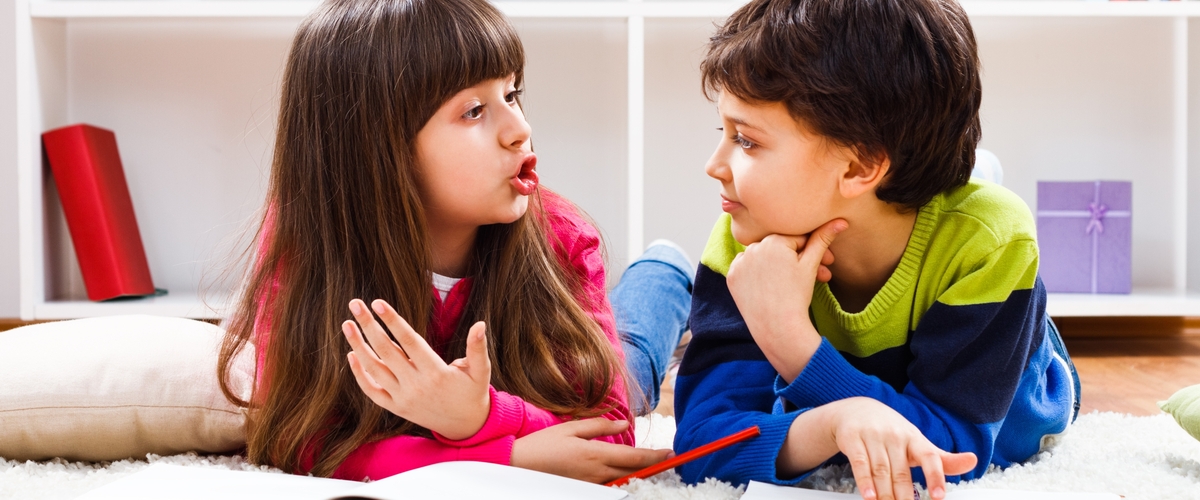Communication skills in early childhood are fundamental for a child’s overall development and form the basis for future language and social interactions. During the early years, children rapidly develop various communication skills that are essential for expressing their needs, understanding others, and engaging with the world around them. For children, developing good communication skills is essential for their overall growth and success. Effective communication empowers children to express themselves, build strong relationships, succeed academically, and thrive in social settings.
Here are some key communication skills that emerge in early childhood:
- Verbal Communication
- Vocabulary Development
- Listening Skills
- Non-Verbal Communication
- Turn-Taking
- Expressing Needs and Emotions
- Following Instructions
- Asking Questions
- Storytelling and Imagination
- Social Interaction
- Understanding Social Cues
- Empathy and Perspective-Taking
- Articulation and Pronunciation
Importance of developing good communication skills in children
- Expression of Thoughts and Feelings
Good communication skills enable children to express their thoughts, ideas, and emotions clearly and confidently. When children can articulate their feelings and opinions, they develop a stronger sense of self-awareness and emotional intelligence. This ability is vital for healthy emotional development and fosters open and honest communication with others.
- Academic Success
Communication skills are integral to academic success. Children who can effectively communicate their knowledge and understanding are more likely to excel in classroom discussions, presentations, and written assignments. They can express their ideas coherently and engage in productive dialogue with teachers and peers.
- Social Interaction and Friendships
Communication skills are the cornerstone of positive social interaction. Children with strong communication abilities can initiate and maintain conversations, actively listen to others, and understand social cues. These skills are essential for forming friendships, resolving conflicts, and building positive relationships with peers.
- Empathy and Understanding
Good communication fosters empathy and understanding in children. When they actively listen and communicate effectively with others, they develop the ability to comprehend different perspectives and experiences. This empathy cultivates a sense of compassion and tolerance towards others’ feelings and viewpoints.
- Conflict Resolution
Children with well-developed communication skills are better equipped to handle conflicts peacefully and constructively. They can express their grievances, listen to others’ perspectives, and work towards finding solutions that benefit all parties involved.
- Building Self-Confidence
Effective communication enhances a child’s self-confidence. When children feel comfortable expressing themselves, they become more self-assured in their abilities, thoughts, and decisions. This self-confidence spills over into various aspects of their lives, such as academic performance and social interactions.
- Academic and Vocational Opportunities
Strong communication skills open doors to numerous academic and vocational opportunities. Employers and academic institutions value individuals who can communicate clearly and persuasively, as these skills are essential in professional settings and teamwork.
- Language Development
Developing good communication skills is closely linked to language development. As children engage in conversations and interact with others, they expand their vocabulary, improve grammar, and refine their language proficiency.
- Advocacy and Leadership
Children with effective communication skills are more likely to become advocates for themselves and others. They can express their needs, advocate for causes they believe in, and take on leadership roles in various settings.
- Reduced Misunderstandings and Frustrations
Clear communication reduces misunderstandings and frustrations in children’s interactions. When they can effectively convey their intentions and understand others, conflicts and miscommunications are minimized, leading to more positive and harmonious relationships.
Conclusion
Developing good communication skills is paramount for a child’s growth, language development, social interactions, and overall success in school and beyond. Effective communication empowers children to express themselves, succeed academically, and form meaningful connections with others. As parents, educators, and caregivers, nurturing and supporting children in their communication journey is a pivotal responsibility that ensures they thrive socially, emotionally, and academically throughout their lives.
Providing a nurturing and language-rich environment, engaging in conversations, reading, and interactive play, and being responsive to a child’s attempts at communication are essential for fostering strong communication skills during early childhood. These skills lay the foundation for continued language development and social competence as children grow and interact with the world around them.

